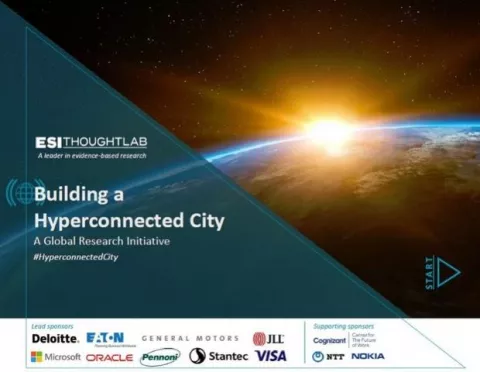
ESI ThoughtLab’s survey confirmed that leading cities are following long-established best practices, including:
- Building a business case and monitoring ROI (return on investment)
- Generating value from the data collected
- Partnering with business and academia
- Undertaking early and broad-based stakeholder engagement
It also confirmed the top roadblocks, including privacy, funding, and policy.
The study’s efforts to quantify ROI underscored the difficulties of assigning hard-dollar amounts to “soft” societal benefits. For example, the research revealed that “smart” public transit increases passenger satisfaction 38%, on-time arrival 33%, and transit ridership 29%. Digital transit payment systems achieved a 6.5% ROI, and mobility-as-a-service apps reached 4.6%.
ROI calculations are straightforward when considering such things as increased ridership. But how do you assign a dollar amount to increased citizen satisfaction? Likewise, how should cities quantify broad environmental and health benefits? For instance, improved mass transit can lead to improved air quality and lower instances of diseases such as asthma and COPD. But how do you assign a dollar value to a sickness that did not occur? Or a traffic jam that did not take place because fewer cars were on the road?
To access the findings and publicly available materials from the study including an eBook, interactive online tool, and case studies, visit https://econsultsolutions.com/hyperconnected-city/.



